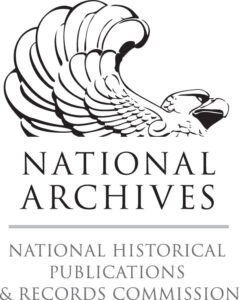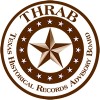Good morning TARO folks!
Hard to believe that we are already 2 months into 2022; time seems to fly by and yet, pandemically stand still. I hope this update finds you, your staff, your repositories, family and friends all well. I wanted to take a moment to give you a TARO update, and share some exciting coming events and news with you.
Stats are available for January! Bookmark the wiki page for the latest statistics from TARO2.0.
Next up, TARO2.0 development wrapped up in December. Many thanks to all of our amazing Valkyrie Squad members who put in extraordinary work last year. Thank you to everyone who completed surveys and did usability testing on the website. Steering and Web/Tech collected that information, and passed it along to the team down in Austin. And finally, thank you to everyone who worked on remediating their finding aids. I know it was a tremendous undertaking on the part of all repositories and staff on top of countless other projects and workloads.
Now for the amazing news: with the support of the Texas State Records Advisory Board (THRAB), the TARO steering Committee submitted an application for funding from the American Rescue Plan Act (ARPA) last December. We were awarded $98,000 to continue the development of the new TARO2 website! *And the crowd goes wild*. So what does this mean? We will be continuing to work on the website, incorporating feedback from the usability surveys and responses, so you may begin to notice changes to the site. Thanks to these ARPA fund we are able to bring in some additional folks, including a subject remediation specialist, and work to establish workflows for incorporating contributions from outside of the core UTL Valkyrie team in the event that opportunities like this arise in the future. This funding will allow us to continue working through the end of September 2022! Thanks to Jelain Chubb and THRAB for their continued support and advocacy for TARO.
Now for even more great news: in person TARO trainings and online webinars are coming soon! We have a variety of upcoming events I invite you to check out. Whether you are new to TARO, new to the profession, or just want a refresher, there is something for everyone. Be sure to mark your calendars and hope to see you soon.
Introduction to TARO2.0 (Webinar)
Tuesday, March 15th, 2022
10:00am-11:00am
Welcome to TARO2.0! Get a guided tour of the new website and all its features. Topics will include: logging in (authenticator / email methods), uploading new finding aids, compliance checking, editing and deleting finding aids. We will also demo the search, advanced search, and browse features of the site as well as analytics. Join us live for a Q&A following the presentation. The webinar will be recorded and added to our training video library.
TARO and ArchivesSpace Open Forum (Webinar)
Tuesday, March 29th, 2022
10:00am-11:00am
Are you an ArchivesSpace user and a member of TARO? Join us for an open forum on TARO2.0. Hear from other ASpace repositories on their workflows, tips, and tricks for exporting XML files and uploading them to TARO. Hear from members of the Texas State Library and Archives, Rice University, and the Briscoe Center. Do you have a process you can share? All are welcome to share their workarounds and best practices for working with ArchivesSpace and TARO. The webinar will be recorded and added to our training video library.
Introduction to TARO: Encoding and Submitting Finding Aids (In-Person)
San Marcos, Texas State University
Friday, April 1st, 2022
10:00am-4:00pm
This workshop will serve anyone learning how to encode archival finding aids using the Encoded Archival Description (EAD) standard in XML, but is focused on the local guidelines and participation logistics for the state consortium for finding aids, Texas Archival Resources Online (TARO). The morning session will provide basic information on EAD and the standards used with it, as well as background on TARO. The afternoon session will include hands-on time using an XML editor (or alternatively, using ArchivesSpace) to build a valid EAD XML finding aid file and seeing how to upload it to TARO. In 2020-2021, TARO underwent significant changes and upgrades, which this workshop will address, so it will be useful even to those who are familiar with the previous version of TARO. This includes required tags and attributes, suggested subject browsing terms, and a new way of uploading and managing files. Participants will learn how XML tags work, what the EAD tags are, how to validate an XML file, how to use the TARO Best Practices Guidelines, and how to upload files to TARO. Detailed handouts and sample files will allow participants to continue their practice after the workshop. Trainers Amy Bowman and Amanda Focke will lead this hands on workshop.
Workshop is free to participants. Limited spaces available; registration required. Click here to register.
TARO and Access Terms (Webinar)
Tuesday, April 19th, 2022
10:00am-11:00am
Join us for a conversation with our subject term remediation specialist. Learn more about TARO2.0’s browse and advanced terms list, and how you can optimize your finding aids for discoverability.
Introduction to TARO: Encoding and Submitting Finding Aids (In-Person)
Dallas, Southern Methodist University
Wednesday, April 27th, 2022
10:00am-4:00pm
This workshop will serve anyone learning how to encode archival finding aids using the Encoded Archival Description (EAD) standard in XML, but is focused on the local guidelines and participation logistics for the state consortium for finding aids, Texas Archival Resources Online (TARO). The morning session will provide basic information on EAD and the standards used with it, as well as background on TARO. The afternoon session will include hands-on time using an XML editor (or alternatively, using ArchivesSpace) to build a valid EAD XML finding aid file and seeing how to upload it to TARO. In 2020-2021, TARO underwent significant changes and upgrades, which this workshop will address, so it will be useful even to those who are familiar with the previous version of TARO. This includes required tags and attributes, suggested subject browsing terms, and a new way of uploading and managing files. Participants will learn how XML tags work, what the EAD tags are, how validate an XML file, how to use the TARO Best Practices Guidelines, and how to upload files to TARO. Detailed handouts and sample files will allow participants to continue their practice after the workshop. Trainers Amy Bowman and Robert Weaver will lead this hands on workshop.
Workshop is free to participants. Limited spaces available; registration required. Click here to register.
Introduction to TARO: Encoding and Submitting Finding Aids (In-Person)
Houston, Society of Southwest Archivists Annual Meeting
Wednesday, May 18th, 2022
10:00am-4:00pm
This workshop will serve anyone learning how to encode archival finding aids using the Encoded Archival Description (EAD) standard in XML, but is focused on the local guidelines and participation logistics for the state consortium for finding aids, Texas Archival Resources Online (TARO). The morning session will provide basic information on EAD and the standards used with it, as well as background on TARO. The afternoon session will include hands-on time using an XML editor (or alternatively, using ArchivesSpace) to build a valid EAD XML finding aid file and seeing how to upload it to TARO. In 2020-2021, TARO underwent significant changes and upgrades, which this workshop will address, so it will be useful even to those who are familiar with the previous version of TARO. This includes required tags and attributes, suggested subject browsing terms, and a new way of uploading and managing files. Participants will learn how XML tags work, what the EAD tags are, how validate an XML file, how to use the TARO Best Practices Guidelines, and how to upload files to TARO. Detailed handouts and sample files will allow participants to continue their practice after the workshop. Trainers Robert Weaver and Amanda Focke will lead this hands on workshop.
Workshop is free to participants. Limited spaces available; registration required. Registration will take place through SSA and the annual meeting registration site. Click here to receive more information.
Sponsored by the Texas Historical Records Advisory Board with funding provided by the National Historical Publications and Records Commission.
Whew! I think that is all the news I have for now. Thank you all again for the work you do. Here’s to TARO2 in 2022.
Best wishes and Happy Valentine’s Day!

nhprc logo

THRAB-Logo

